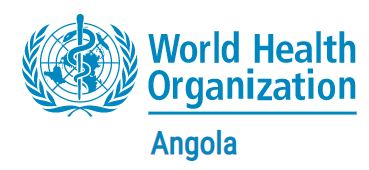To end tuberculosis and protect its citizens, Angola has been intensifying its actions to fight tuberculosis (TB), which resulted in a significant improvement in the service network’s coverage in 2018.
According to the Secretary of State for Public Health, Professor Dr. Carlos Pinto de Sousa, tuberculosis represents the 3rd leading cause of morbidity and mortality in the country, which requires everyone’s participation to eliminate it.
“Tuberculosis is not just a public health problem; it’s also a poverty problem. The Angolan government considers its elimination a priority and an opportunity for the country’s social and economic development.”
Despite the ongoing efforts, Angola is among the 20 countries most affected by tuberculosis worldwide, with an annual average of 65,000 new cases of tuberculosis in the last five years. Several challenges remain, especially in regions such as Benguela, Namibe and Luanda, where incidence and prevalence rates continue to be higher than the national average.
This data underlines the urgency of collective action to tackle the current TB epidemic and highlights the need for joint and sustained efforts to end TB in Angola through coordinated actions, such as intensifying prevention and treatment measures, particularly in critical areas, while maintaining a global effort to reduce the burden of tuberculosis throughout the country.
To accelerate action and end TB, WHO supported revising the National TB Strategic Plan 2018-2022 and developing a new TB Strategic Plan (PEN TB 2023-2027). This intervention is in line with the political declaration of the Heads of State and Government and the representatives of States and Governments on the “commitment to end the tuberculosis epidemic by 2030”, signed at the second United Nations high-level meeting on tuberculosis, held in September 2023.
The Acting WHO Representative in Angola, Dr Yoti Zabulon, said it is necessary to continue working together to develop innovative approaches to reach vulnerable populations and ensure they have access to care and quality management of tuberculosis.
“The WHO congratulates Angola on the expansion of the network of tuberculosis services to put an end to this disease. We believe that the political commitment shown by the government, coupled with future swift measures, such as increased investment, adoption of innovations and the new WHO recommendations for the elimination of TB, as well as the strengthening of multisectoral and inter-country collaboration, can accelerate the response to TB, saving millions of lives of our citizens.”
Worldwide, TB is the second leading cause of infectious death after COVID-19. Every year, around 1.3 million people lose their lives, and around 10.6 million are affected by the disease.
This year’s World TB Day, March 24, is celebrated under the theme “Yes, we can end tuberculosis.” It calls for accelerated action and reflection on the progress made and the challenges facing our efforts to eliminate tuberculosis as a public health threat.
In Angola, World TB Day was marked by a national workshop on tuberculosis and other activities in many provinces, with the participation of various strategic partners in the fight against this epidemic.
Distributed by APO Group on behalf of World Health Organization (WHO) – Angola.
